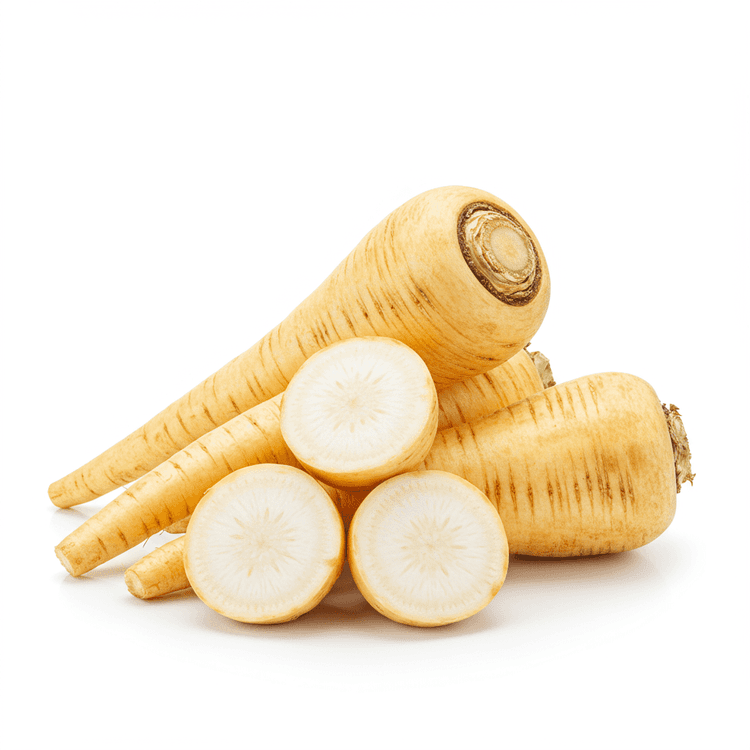
Parsnip
Parsnip is a versatile root vegetable known for its creamy white color, earthy sweetness, and slightly nutty flavor. With a texture that becomes tender and smooth when cooked, parsnips are often compared to carrots but offer a deeper, richer taste profile. This cold-weather crop is a favorite in hearty winter dishes and adds a subtle sweetness to soups, stews, and roasted vegetable medleys. Parsnips are packed with nutrients like fiber, vitamin C, and potassium, making them a healthy and flavorful addition to your meals.
Common Uses
- Roast parsnips with olive oil, salt, and herbs for a caramelized, slightly sweet side dish perfect for holiday dinners or weeknight meals.
- Add diced parsnips to soups and stews to enhance their flavor with a subtle sweetness and creamy texture as they cook.
- Mash parsnips with butter and cream for a delicious alternative to mashed potatoes, offering a nutty and earthy twist.
- Use parsnips in purees or sauces to create a velvety base for dishes like roasted meats or vegetarian entrees.
- Slice parsnips thinly and bake them into crispy chips for a healthy snack or garnish for salads and soups.
- Incorporate grated parsnips into baked goods like muffins or cakes for a naturally sweet and moist texture.
Nutrition (per serving)
Nutrition (per serving)
Calories
75.0kcal (3.75%)
Protein
1.2g (2.4%)
Carbs
18.0g (6.55%)
Sugars
4.8g (9.6%)
Healthy Fat
0.2g
Unhealthy Fat
0.1g
% Daily Value based on a 2000 calorie diet
Nutrition (per serving)
Calories
75.0kcal (3.75%)
Protein
1.2g (2.4%)
Carbs
18.0g (6.55%)
Sugars
4.8g (9.6%)
Healthy Fat
0.2g
Unhealthy Fat
0.1g
% Daily Value based on a 2000 calorie diet
Health Benefits
- Rich in dietary fiber, which supports healthy digestion and helps maintain a feeling of fullness.
- Contains essential vitamins like vitamin C and folate, which contribute to immune health and overall well-being.
- A good source of potassium, aiding in maintaining healthy blood pressure levels.
- Naturally sweet and nutty flavor makes it a versatile ingredient for soups, stews, and roasted dishes.
- Low in calories and fat, making it a great addition to weight-conscious diets.
- Provides antioxidants that may help protect cells from damage caused by free radicals.
Chefadora AI is here.
Experience smarter, stress-free cooking.
Storage Tips
Store parsnips in the refrigerator, preferably in a perforated plastic bag or wrapped in a damp paper towel to maintain moisture. Keep them in the crisper drawer for up to 2-3 weeks. Avoid washing them before storage, as excess moisture can lead to spoilage. For longer storage, parsnips can be blanched and frozen in airtight containers or freezer bags.
Marnirni-apinthi Building, Lot Fourteen,
North Terrace, Adelaide, South Australia, 5000
Australia

